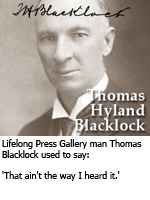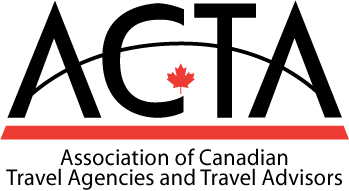Cabinet Nixes Air Complaint
 Tom Korski, www.blacklocks.ca
Tom Korski, www.blacklocks.ca
An unhappy Air Canada passenger has lost a bid to petition cabinet against airline surcharges. Ministers dismissed an appeal of a Canadian Transportation Agency decision that upheld the company’s right to bill passengers for fuel in the name of “air transportation charges”.
Tom Brown of Kelowna, B.C. complained to cabinet after he was charged $1,552 in fuel surcharges on two roundtrip tickets to Florence, Italy in 2013. Brown said the charges were “unreasonable”; that Air Canada failed to detail fuel surcharges on its website; and that fees were arbitrarily assessed depending on whether passengers were flying Economy or Business Class.
The Agency two years ago agreed it was not clear “how Air Canada calculates its fuel surcharges”, but found no breach of regulations under the Canada Transportation Act. “The Agency does not find Mr. Brown’s submissions to be compelling,” regulators wrote.
Brown could not be reached for comment. The Transportation Agency beginning in 2013 allowed airlines to charge perpetual fuel fees; surcharges had previously been subject to mandatory expiry dates that forced airlines to reapply for authority to collect the fees.
“It is supply and demand,” Jacqueline Bannister, Agency spokesperson, said in an interview at the time. “It is consumer-driven. We do not require that carriers submit fuel surcharges with expiry dates. That’s not such a concern for the agency anymore. We just ask to be kept informed.”
In the Brown case, regulators acknowledged it was impossible for travellers to identify how much they pay for fuel on domestic flights. “Air Canada has incorporated fuel surcharges into its base fares for domestic carriage and therefore those surcharges are not, in fact, identifiable,” the Agency wrote. Surcharges on foreign travel varied widely by route and ticket class.
A seven-month investigation of Scandinavian Airlines in 2013 found the company advertised website fares that misidentified its fuel surcharges as a tax. Regulators waived a $25,000 fine against the airlne in a ruling the Consumers’ Association of Canada then described as “disgusting”.
“We had believed until this very second that fines were utilized,” Bruce Cran, Association president, said in an earlier interview. “Of course administrative monetary penalties make a difference. This is something we fought for decades.
“Why on earth would an agency give Scandinavian Airlines a break? It’s disgusting,” Cran said. “We were under the impression the regulations were to be enforced, and that if you don’t conform to the law you are penalized. I do not see the reason for leniency.” No estimate of the industry-wide revenues from fuel surcharges is known. The U.S. Department of Transportation in 2012 enacted regulations requiring that carriers publish complete, accurate details of all taxes and service fees applied to airline fares.
